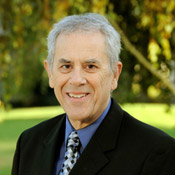Ecclesiology is changing. The manner of how we ‘do church’ is being evaluated not only in culture, but also within the church. Even, perhaps especially, the mega church is taking a deeper look at how we can better reach and engage our culture. Rick Rusaw and Brian Mavis of LifeBridge Christian Church in Longmont, Colorado have captured the biblical, cultural, and practical insights into the movement from the attractional model to the incarnational model.
Chapter three’s title gives a keen insight, “Being a Good Neighbor is Better Than a Good Program”. This concept takes the church back to its roots: “Day by day… they broke bread at home and ate their food with glad and generous hearts” (Acts 2:46). Rather than being program oriented they are emphasizing personal relationship. Rather than just meeting in the church building, they are advocating meeting with one’s neighbors in one another’s homes.
In the “Externally Focused Church” Rick Rusaw and Eric Swanson ask, “Would your community weep if your church vanished?” In “The Neighboring Church” Rick and Brian ask, “Would my neighbors care if I left?” They bring the church to a different level than just the organizational church in a church building. They bring the church to the home! Their conclusion/opinion is, “Pragmatically, we don’t think the church, as it is institutionally expressed, matches the future. (p.11). Their book is then an exploration of what the future church could/should become.
Theologically the concept of being a good neighbor is tied to God and Jesus. They state that God was the original-the first good neighbor because he created a place for humankind to live with him (p. 31). Jesus then demonstrated that attitude by moving into the neighborhood (p.33). He tented among us, as John 1:14 states. It is an interesting metaphor worth contemplating. If God/Jesus were good neighbors, perhaps, we should be too. That approach may what the upcoming generation will respond to.
There is still a place for corporate worship in this model. However, that service is not the focal point of the church. The main ministry takes place where people live, in their neighborhood.
Rusaw and Mavis reiterate an important concept from the ‘Externally Focused Church’. “While evangelism may be our ultimate motive, it is not our ulterior motive” (p.111). This concept is an important one regardless of the model being used.
Perhaps, there is a new wind blowing in the church. That wind is a fresh wind that comes from the early church. Now may be the time for the church of today to learn from the church of the first century: day by day in people’s homes they shared and expressed their faith!
Dietrich Bonhoeffer said it well:
“The person who loves their dream of community will destroy community, but the one who loves those around them will create community.”(Life Together: The Classic Exploration of Christian Community, p.27 quoted by Rusaw & Mavis on page 45.)
Available for sale on Amazon.
Coming soon to the Darling Library.
Dr. Joseph C. Grana II is Dean of the Pacific Christian College of Ministry & Biblical Studies and Professor of Church Ministry of Hope International University.

No comments:
Post a Comment